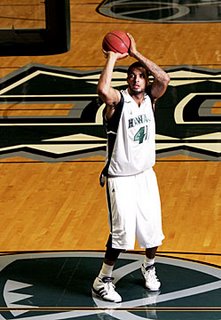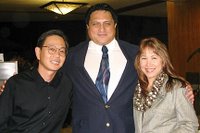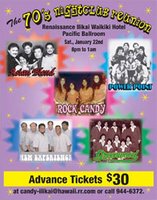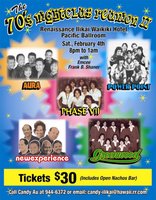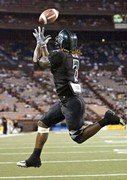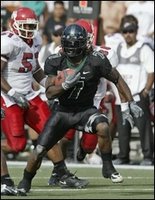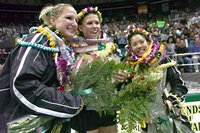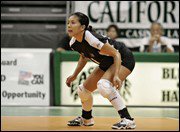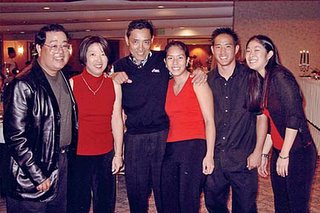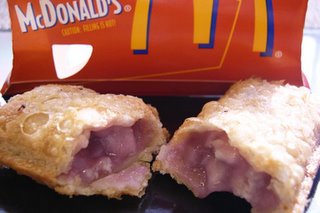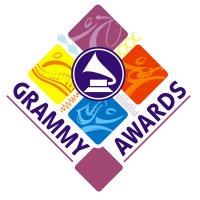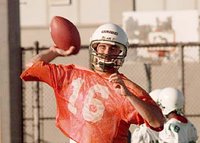

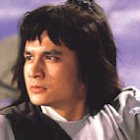
Now this is one real cool story and now I know where to go to get my fix of the good old days. Carl Douglas had a hit song "Kung Fu Fighting" at the peak of the Kung Fu movie craze and a craze it was, it was cool before cool was cool. I remember taking my son to the old Empress Theatre at the corner of Beretania and Nuuanu, I think, or even to the old Harvest Theatre on was it Smith Street? It was absolutely great, watching kung fu sagas over the big wide screen, learning how to speed read English sub-titles. Can people fly around like that? The good guys were always being beaten up by them bad guys but you know, good prevails even though the hero often got killed in the process. Then came those Friday nights on the good old local ABC affiliate. Black Theatre, where our favorite kung fu movies had English dubbed over the real Chinese speaking. You know, where you know the mouths are saying one thing but the words that come out are in English in an Western accent. As time went on and the kung fu craze was hitting its crescendo, many of the films released began to become a bit hokey, but when you go back and watch the real kung fu classics starring Alexander Fu Sheng, David Chiang and Ti Lung you couldn't help but sit in awe of the spectacles only the Shaw Brothers could produce. Anyway, it was a cool time once upon a time. I think I'll head over to get a couple of kung fu movies right after I post this. Cool!!!!!

DENNIS ODA/DODA@STARBULLETIN.COM
Emily Ng, owner of Dragon Gate Bookstore in the Chinatown Cultural Plaza, sells hard-to-find kung fu films as well as classic Chinese titles, Shaw Brothers movies and contemporary Asian DVDs and VCDs.
Kung Fu Master
At Dragon Gate Bookstore, owner Emily Ng caters to fans of Asian cinema, classic king fu and the work of the Shaw Brothers
By Nadine Kam
nkam@starbulletin.com
It seems English-language speakers aren't the only ones who aren't reading anymore. Emily Ng, manager of Dragon Gate Bookstore, started noticing a drop-off in Chinese-language book sales about eight years ago.
Dragon Gate Top 20
"Initial D the Movie"
"House of Fury"
"Tai Chi Master"
"Hero"
"House of Flying Daggers"
"Shaolin Soccer"
"Sword in the Moon"
"Shaolin vs. Evil Dead"
"Kung Fu Mahjong"
"Stairway to Heaven"
"Butterfly Sword"
"Dragon Inn"
Top Shaw Brothers DVDs
"Avenging Eagle"
"36th Chamber"
"Shaolin Temple"
"Five Shaolin Master"
"The Brave Archer (1, 2, 3, 4)"
Rather than wait for obsolescence, she started bringing in videos and DVDs, starting with kung fu films not carried by rental operations such as Blockbuster. Since then she's managed to create a niche for fans of Chinese and Asian cinema in her small, unassuming storefront at the Chinatown Cultural Plaza.
"These days, people find more enjoyment watching movies," Ng said. "At first I brought in kung fu movies that local people asked for most frequently. Then I started reading about films and studying international film festivals to see what was good."
Film aficionados can look forward to the latest dramas from China, Japan, Korea and Thailand. And if that's not enough, well, there's the old stuff, too.
Ng's been bringing in classic Shaw Brothers titles since 2002, when Celestial Pictures began releasing the films, dating to 1966, in VCD, DVD and VHS formats to feed a growing global demand for Chinese and Asian cinema. The plan was to release 760 Shaw Brothers titles, at a rate of 10 to 20 titles each month, through 2007. About five new titles arrive in Hawaii every two weeks.
"I always liked to watch movies, but now every night I have to watch," Ng said. "Otherwise, I can't tell people about them."
Her critiques and memory are valued by film buffs in search of particular old films or just a recommendation.
"She hasn't steered me wrong yet," said film fan Laura Chun. "She has a feel for what I like -- not only kung fu. I also like history, I like culture, I like art. Certain ones she'll recommend, and we give her our criticism so she can share with others.
"With a film like 'Kung Fu Mahjong,' she asked me if I play mah-jongg because you have to understand the game or you won't know what's going on. You can follow, but you won't get all the humor."
Retired Air Force instructor Mel Chang searched a long time for a film he remembered as "Hero from the East," starring Gordon Liu, only to learn through Ng that it had been re-released as "Ninja vs. Kung Fu," which more accurately reflected the plot. In the film a Japanese martial arts student is beaten by a kung fu master and complains to her teachers of judo, karate, aikido, sumo and ninja techniques, who challenge the "new" discipline.
Chang says he often walks out of the bookstore with $200 worth of videos in hand, and because he's retired, he'll sometimes settle back for an eight-hour movie marathon.
"I like foreign films because most are pretty spiritual. Life is a puzzle, and movies help us figure it out. In life, I believe you get better and better, and a lot of the old kung fu masters, they had these philosophies of life. If you always want to fight, if you're not humble, nobody's going to teach you. You always have to prove you're worthy."

DENNIS ODA/DODA@STARBULLETIN.COM
Emily Ng offers customers help finding old favorites and advice about new films they might like to try.
Although the Shaw Brothers, Run Run and Run Me, produced comedies, historic dramas, operas and musicals, they are most frequently remembered and credited with boosting Hong Kong's kung fu movie industry.
Because they invested in Southeast Asia theaters, they also controlled what was shown, and profits were used to finance their output of more than 1,000 films over four decades.
In that time, they built a stable of superstars including Alexander Fu Sheng, Chen Kuan-Tai, Ti Lung, David Chiang and the Venom Boys Kuo Chue, Chiang Sheng, Lu Feng, Lo Mang, Sun Chien and Wei Pai. At the tail end came actors such as Jackie Chan and Sammo Hung.
Myrna Libed, 49, a state librarian, was 17 or 18 when she saw the films for the first time at Tojo, Hawaii and King theaters in the 1970s.
"I think they're still better than some of the ones they make today because before, they all had to know martial arts. Now they use stunt people and wires.
"I used to go to watch Alexander Fu Sheng and Ti Lung, and I still enjoy those films. It was always one guy against everybody else, and for many people I think it fulfilled an escapist fantasy, where you could be a kick-ass dude and survive. How often are you going to do that in real life?"
Real martial arts skill is also appreciated by Chun. One of the highlights of "Crouching Tiger, Hidden Dragon," she said, was seeing a Shaw star, Chun Pei Pei, as the sorceress who plays Ziyi Zhang's character's mentor. "If you knew her work then and compared it to now, it's amazing. She's now a grandmother, and even though she's older and gained weight, she's still got it. She still has her moves."
Chun worked part time at Empress Theatre from 1973 until it closed in 1986. "That was when Betas and VHS came out, and there was lots of change in Hong Kong. Companies started reinvesting in TV and doing more video."
Ricky Valdez, 34, now a security guard for the University of Hawaii medical school, said he was 13 when he began watching kung fu films at Liberty Theatre, across the street from Empress. "I used to cut out of (Kawananakoa) school to see them."
He chose Liberty because films there tended to be dubbed into English. "At Harvest Theatre and some of the other theaters, it was mainly Chinese dubbed, so you had to read fast."
Luckily, technology now makes it possible to pause the films in his DVD player if he misses a word or two.
The VCD and DVD releases "bring back a lot of good memories that I kind of missed," he said. "As I see them today, they're not as graphic as films now."
Libed agreed, saying, "In those films, there was no blood. Violence was implied. Today it's just kill, kill, kill, but in the old films, any killing was done in terms of revenge, honor and justice. The plots were really simple -- good vs. evil -- but good always triumphed in the end.
"For me the stories were always about hope and gave a positive view of the world in that something good would happen if you remained true to the path," Libed said. "It's so different from today, where money triumphs over being good."
The films help fuel Valdez's interest in his culture -- he's of Chinese, Hawaiian and Filipino ancestry -- and martial arts. For seven years he's been practicing the art of fut gar, the Buddhist Fist, a simplified version of kung fu. "I've learned a lot of discipline, how to respect others. You know, it's a defense, not an offense."
He got a thrill when, as a former employee at Jackie's Kitchen, he had the opportunity to meet the "Young Master" himself. "He does so much good in the world through his work with charities. He's done so many interviews he doesn't even talk to the press, but he will if you want to talk about the charities."
Over time he's watching fewer Hollywood offerings. A major difference between Western and Asian cinema is in values. Many of today's Asian dramas still reflect the idea of obligation to community and family, while Western films are focused on individual pursuits and accomplishments.
"I get tired of watching things too Western," Valdez said. "I like watching Japanese, Korean, Filipino and Thai movies. I think it's good to watch something that's different because you learn so much more. It gives you a better understanding of people, like my grandparents, and why they hold their emotions in, whereas people my age, we let everything out."
Even so, the Shaw films are not for everyone. Nonfans will consider the films to be, like many 1970s TV shows, somewhat cheesy.
"The old types of films are like Old Hollywood, like 'Wizard of Oz.' They just don't make them like they used to," Chun said, while adding the beauty of the classics might be lost on a younger generation informed by stories told today with quick cuts and digital effects.
"I love 'Mary Poppins,' too, but kids today are exposed to so many visuals my nieces and nephews don't appreciate it. It's a different generation growing up with different ideals."
-----------------------------------
Dragon Gate Bookstore is at Chinatown Cultural Plaza, 100 N. Beretania St. Call 533-7147. Shaw Brothers VCDs sell for $13.95 each, or four for $45.

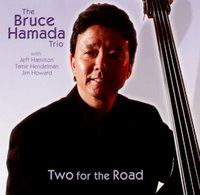 Bruce Hamada is a name from the past I remember. Although he has been a staple of jazz performers in Hawaii for at least a couple of decades, it wasn't long ago that Bruce was bandleader and bass player for the 70s cover band Livewire. Livewire was a blend of talented musicians including a horn section that included trumpet players Bob Woosley, Todd Hayashi and sax player Randall Hoo. Bob Woosley went on to play with Power Point and Randall Hoo joined Greenwood. Livewire was a pool of talent and you could hear them play selections from horn bands like Tower of Power. A great band, full of talent, it is no wonder that Bruce Hamada has established himself among Hawaii's jazz greats. Cool, tropical and jazz. Here's John Berger's review of Bruce Hamada's CD.
Bruce Hamada is a name from the past I remember. Although he has been a staple of jazz performers in Hawaii for at least a couple of decades, it wasn't long ago that Bruce was bandleader and bass player for the 70s cover band Livewire. Livewire was a blend of talented musicians including a horn section that included trumpet players Bob Woosley, Todd Hayashi and sax player Randall Hoo. Bob Woosley went on to play with Power Point and Randall Hoo joined Greenwood. Livewire was a pool of talent and you could hear them play selections from horn bands like Tower of Power. A great band, full of talent, it is no wonder that Bruce Hamada has established himself among Hawaii's jazz greats. Cool, tropical and jazz. Here's John Berger's review of Bruce Hamada's CD.





